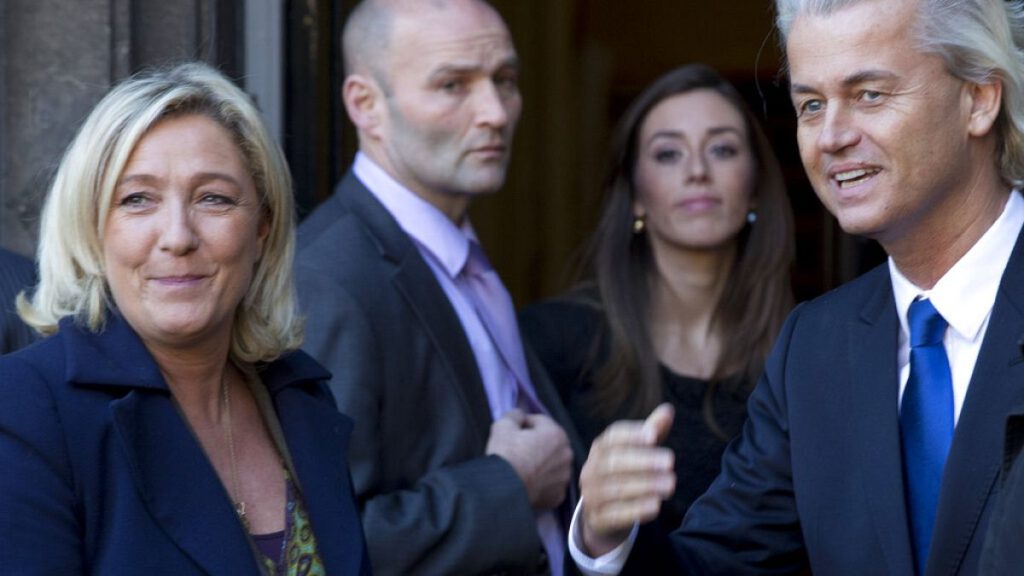The once unified Inner Six countries of the European Union, including Belgium, France, Germany, Italy, Luxembourg, and the Netherlands, are now seeing a rise in support for far-right and conservative parties due to growing immigration concerns. A survey conducted by Euronews based on 26,000 interviews revealed that these countries are leaning towards the radical right in terms of seat projection for the next European Parliament. The growth of parties affiliated with the far-right parliamentary group Identity and Democracy (ID) in France, the Netherlands, and Belgium, as well as the expected strong performance of Italy’s right-wing Brothers of Italy, show a significant shift in the political landscape of the region.
The surge in support for far-right and conservative parties in the Inner Six countries is largely attributed to concerns surrounding immigration policy. The majority of those surveyed in France, Germany, the Netherlands, Italy, and Belgium believe that the EU has had a negative impact on migration policy. Additionally, a significant number of respondents in the Netherlands and Germany prioritize the fight against illegal migration, which has fueled the rise of right-wing parties in these countries. This changing political landscape has raised concerns among pro-EU advocates and has led to a reevaluation of traditional party alliances.
Progressive factions in the Inner Six countries are expected to experience a decline in representation in the upcoming European Parliament elections. The Green bloc and the Renew group are both projected to lose seats, as mounting skepticism towards incumbent parties like Germany’s Greens and President Emmanuel Macron’s Renaissance movement persists. However, socialist parties in Italy and Germany are expected to maintain their strength, while socialist parties in France, Belgium, and the Netherlands are projected to see improved performances, driven in part by the return of former Commission Vice President Frans Timmermans to domestic politics.
The growth of currently non-affiliated parties, particularly populist movements like Germany’s Sahra Wagenknecht Alliance and Italy’s Five Star Movement, could impact the future composition of the European Parliament. Sahra Wagenknecht Alliance, which split from the German Left with a stronger stance on migration policy, and Italy’s Five Star Movement, which previously struggled to find a political home, are expected to gain more influence in the Parliament. The elections scheduled for June 2024 are anticipated to be a significant democratic event, with potential shifts in power and alliances within the Inner Six countries shaping the future of European politics.


